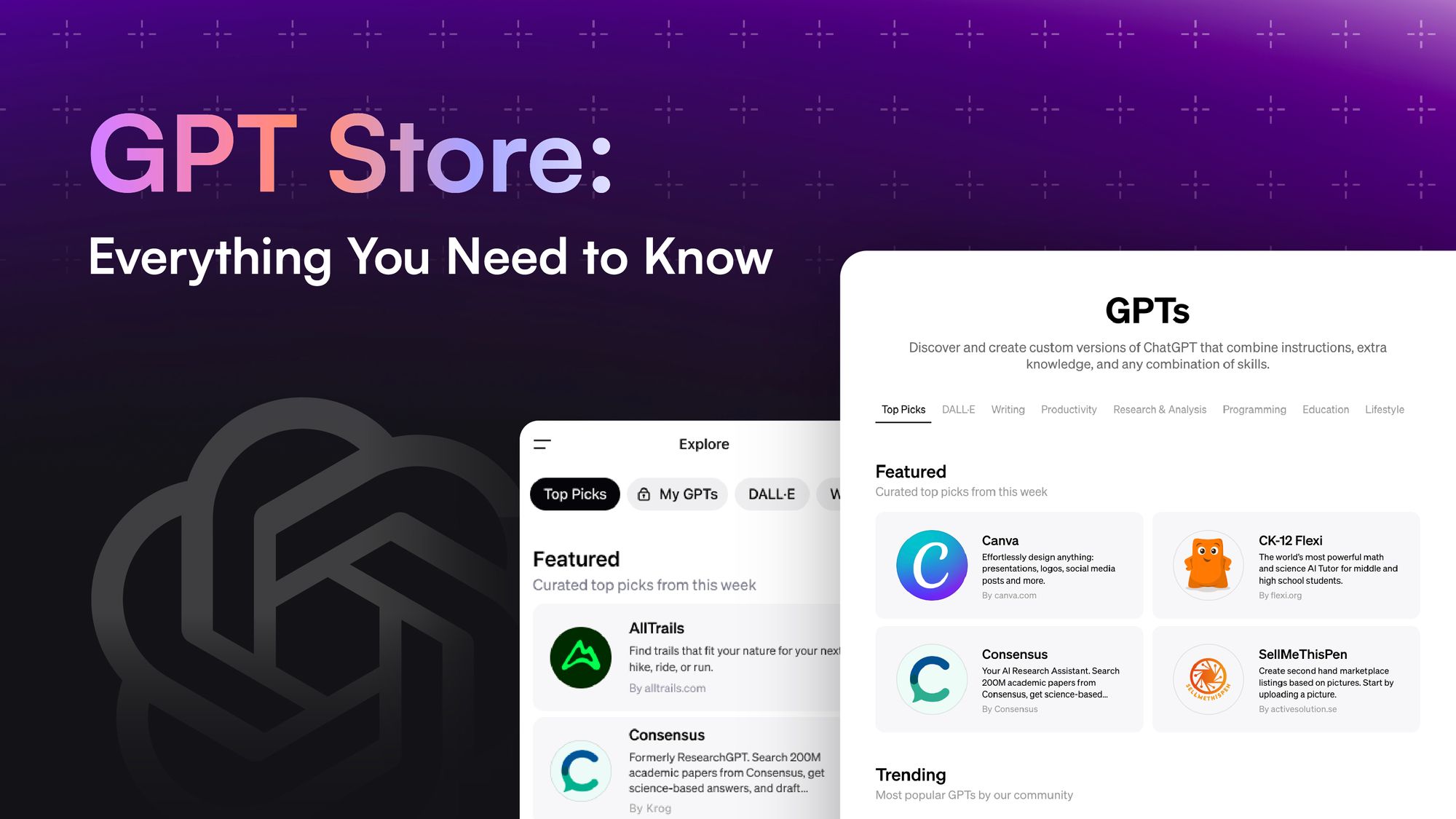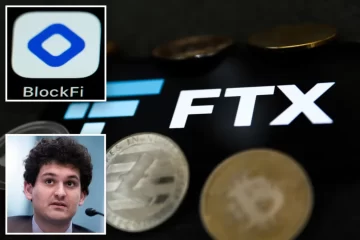
-
OpenAI’s latest initiative marks a significant step towards building a sustainable ecosystem that rewards the contributions of its community members.
-
Exclusively available to developers and creators in the United States during its initial phase.
-
In the initial rollout of the payment model, eligibility is restricted to developers who have crafted “popular and engaging GPTs” within the store.
In an ambitious stride towards fostering innovation and creativity within the artificial intelligence sector, OpenAI unveiled the GPT Store in January 2024. This pivotal move not only signifies a significant advancement in AI accessibility but also introduces a groundbreaking payment model tailored for developers and creators of Generative Pre-trained Transformer (GPT) applications.
As the landscape of AI continues to evolve, OpenAI’s latest initiative marks a significant step towards building a sustainable ecosystem that rewards the contributions of its community members. This article delves into the critical facets of the GPT Store launch, the introduction of the payment model, and the broader implications for the future of AI development and monetization.
It’s been two months since we announced GPTs, and users have already created over 3 million custom versions of ChatGPT. Many builders have shared their GPTs for others to use. Today, we’re starting to roll out the GPT Store to ChatGPT Plus, Team and Enterprise users so you can find useful and popular GPTs. Visit chat.openai.com/gpts to explore.
Introduction of a Payment Model to the GPT Store
At the core of the GPT Store’s launch is implementing a novel payment model, exclusively available to developers and creators in the United States during its initial phase.
This model is designed to compensate the architects behind the most engaging and innovative GPT applications featured in the store financially. By directly rewarding creators based on the usage and popularity of their applications, OpenAI is setting a new standard for how developers can benefit from their contributions to the AI field.
Fulfilling a Promise
OpenAI’s decision to introduce a compensation mechanism for GPT Store contributors fulfils a commitment made in January 2024. This pledge underscored the organization’s dedication to recognizing and rewarding the efforts of developers and creators within its ecosystem.
By initiating payments within the year’s first quarter, OpenAI demonstrates its steadfast commitment to advancing AI technology and ensuring that those who contribute to its progress are adequately compensated.
We’re partnering with a small group of US builders to test usage-based GPT earnings. Our goal is to create a vibrant ecosystem where builders are rewarded for their creativity and impact and we look forward to collaborating with builders on the best approach to get there.
— OpenAI (@OpenAI) March 27, 2024
Ecosystem Goal
The overarching aim of the GPT Store and its associated payment model is to cultivate a vibrant and thriving ecosystem where innovation and creativity are at the forefront. OpenAI envisions a collaborative environment where builders are incentivized to make impactful and imaginative contributions.
This vision extends beyond mere financial compensation, encompassing a broader goal of fostering an AI development landscape that is both dynamic and inclusive. In some form, GPTs will become the new mobile apps.
Eligibility Criteria
In the initial rollout of the payment model, eligibility is restricted to developers who have crafted “popular and engaging GPTs” within the store.
This criterion underscores the importance of quality and user engagement in determining the value of AI applications. OpenAI intends to expand the eligibility criteria following the test period, enabling a more comprehensive range of developers to monetize their innovative work.
Availability to Chat GPT Plus Subscribers
Before the launch of the GPT Store, custom GPT applications were created as an exclusive feature available only to ChatGPT Plus paid subscribers. The introduction of the GPT Store has democratized this capability, allowing anyone to develop and share their custom GPTs. This expansion significantly enhances the platform’s utility, particularly for users who regularly rely on specific word prompts or commands.
Including your custom GPT in the store is an accessible process that requires no programming expertise. To get started, you should ensure your GPT is set to “Save for Everyone,” meaning it’s publicly accessible, as private links won’t be displayed in the store. Next, verifying your Builder Profile is crucial by navigating to Settings, then Builder profile, and enabling your name or linking to a verified website.
Additionally, familiarizing yourself with and adhering to the latest usage policies and GPT brand guidelines is essential for compliance. A new review system has been implemented to maintain the integrity of GPT submissions, complementing the existing safety protocols. This system encompasses human and automated evaluations, allowing users to report GPTs that may violate guidelines and ensuring a safe and respectful environment for all users.
Future Plans
Looking ahead, OpenAI has committed to providing more detailed information once the test period concludes. The promise of sharing further details hints at the organization’s plans to broaden the scope of developer monetization opportunities within the GPT Store ecosystem. This forward-looking approach indicates a continuous effort to evolve the platform to benefit creators and users.
Implications for AI Development and Monetization
The launch of the GPT Store and its innovative payment model represents a watershed moment in AI development and monetization. By establishing a direct link between GPT applications’ popularity and their creators’ financial compensation, OpenAI is pioneering a new model for incentivizing high-quality, impactful AI work.
This initiative provides a tangible means for developers to benefit from their contributions and encourages a more dynamic and diverse array of GPT-based applications and tools.
Moreover, democratizing custom GPT creation fosters a more inclusive environment for AI innovation. By lowering the barriers to entry, OpenAI ensures that a broader range of voices and perspectives can contribute to the development of AI technologies. This inclusivity is crucial for driving the advancement of AI in a way that reflects the diverse needs and challenges of society at large.
AI moves to the ecosystem stage.
The introduction of the GPT Store and its associated payment model by OpenAI is a bold step towards creating a sustainable and rewarding ecosystem for AI developers and creators. As the platform continues to evolve and expand its reach, the implications for the future of AI development and monetization are profound.
With a commitment to rewarding creativity and impact, OpenAI is paving the way for a new era of AI innovation that is both inclusive and economically viable for its contributors. As the GPT Store matures and its community grows, the potential for groundbreaking advancements in AI technology and its application seems boundless, promising a future where AI development is both a pursuit of passion and a viable profession.
- SEO Powered Content & PR Distribution. Get Amplified Today.
- PlatoData.Network Vertical Generative Ai. Empower Yourself. Access Here.
- PlatoAiStream. Web3 Intelligence. Knowledge Amplified. Access Here.
- PlatoESG. Carbon, CleanTech, Energy, Environment, Solar, Waste Management. Access Here.
- PlatoHealth. Biotech and Clinical Trials Intelligence. Access Here.
- Source: https://web3africa.news/2024/04/05/news/openai-gpt-store-revenue-program/
- :has
- :is
- :not
- :where
- 11
- 2024
- 27
- 9
- a
- accessibility
- accessible
- adequately
- adhering
- advancement
- advancements
- advancing
- ahead
- AI
- aim
- All
- Allowing
- already
- also
- ambitious
- an
- and
- announced
- anyone
- Application
- applications
- approach
- apps
- architects
- ARE
- Array
- article
- artificial
- artificial intelligence
- AS
- associated
- At
- Automated
- available
- barriers
- based
- BE
- become
- been
- behind
- benefit
- BEST
- between
- Beyond
- bold
- both
- boundless
- brand
- broaden
- broader
- builder
- builders
- Building
- but
- by
- CAN
- capability
- challenges
- chat
- ChatGPT
- collaborating
- collaborative
- commitment
- committed
- community
- compensated
- Compensation
- complementing
- compliance
- comprehensive
- concludes
- continues
- continuous
- continuous effort
- contribute
- contributions
- contributors
- Core
- crafted
- create
- created
- Creating
- creation
- creativity
- creators
- criteria
- critical
- crucial
- Cultivate
- custom
- decision
- dedication
- delves
- democratized
- Democratizing
- demonstrates
- designed
- detailed
- details
- determining
- develop
- Developer
- developers
- Development
- direct
- directly
- displayed
- diverse
- driving
- during
- dynamic
- Earnings
- ecosystem
- effort
- efforts
- eligibility
- enabling
- encompasses
- encompassing
- encourages
- engagement
- engaging
- Enhances
- ensure
- ensures
- ensuring
- Enterprise
- entry
- Environment
- envisions
- Era
- essential
- establishing
- evaluations
- everyone
- evolve
- Exclusive
- exclusively
- existing
- Expand
- expansion
- expertise
- explore
- extends
- facets
- Feature
- featured
- field
- financial
- financially
- Find
- First
- following
- For
- forefront
- form
- Forward
- forward-looking
- fostering
- fosters
- from
- further
- future
- generative
- get
- goal
- groundbreaking
- Group
- Grows
- guidelines
- Have
- high-quality
- hints
- How
- HTTPS
- human
- Impact
- impactful
- implemented
- implementing
- implications
- importance
- in
- incentivized
- incentivizing
- Inclusive
- Inclusivity
- indicates
- information
- initial
- Initiative
- Innovation
- innovative
- integrity
- Intelligence
- intends
- into
- introduce
- Introduces
- Introduction
- ITS
- January
- jpeg
- landscape
- large
- latest
- launch
- LINK
- linking
- links
- Look
- Lowering
- made
- maintain
- make
- many
- matures
- May..
- meaning
- means
- mechanism
- Members
- mere
- million
- Mobile
- mobile-apps
- model
- moment
- monetization
- monetize
- months
- more
- most
- move
- moves
- name
- navigating
- needs
- New
- next
- no
- novel
- of
- on
- once
- only
- OpenAI
- opportunities
- or
- Others
- our
- out
- over
- overarching
- paid
- particularly
- partnering
- passion
- Paving
- payment
- payments
- period
- perspectives
- phase
- Pioneering
- pivotal
- plans
- platform
- Platforms
- plato
- Plato Data Intelligence
- PlatoData
- Pledge
- plus
- policies
- Popular
- popularity
- potential
- private
- process
- profession
- Profile
- profound
- Programming
- Progress
- promise
- promising
- prompts
- protocols
- provides
- providing
- publicly
- pursuit
- quality
- Quarter
- range
- reach
- recognizing
- reflects
- regularly
- rely
- report
- represents
- requires
- restricted
- review
- rewarded
- rewarding
- Rewards
- Roll
- rollout
- safe
- Safety
- scope
- sector
- seems
- set
- setting
- settings
- Share
- shared
- sharing
- should
- significant
- significantly
- signifies
- since
- small
- So
- Society
- some
- specific
- Stage
- standard
- started
- Starting
- States
- steadfast
- Step
- store
- stride
- Submissions
- subscribers
- sustainable
- system
- tailored
- tangible
- team
- Technologies
- Technology
- test
- that
- The
- The Future
- The Landscape
- their
- then
- There.
- this
- those
- thriving
- to
- today
- tools
- towards
- transformer
- true
- two
- underscored
- underscores
- United
- United States
- unveiled
- Unveils
- us
- Usage
- use
- useful
- User
- users
- utility
- value
- verified
- verifying
- versions
- viable
- vibrant
- vision
- Visit
- VOICES
- Way..
- we
- Website
- were
- WHO
- will
- with
- within
- Word
- Work
- You
- Your
- yourself
- zephyrnet













